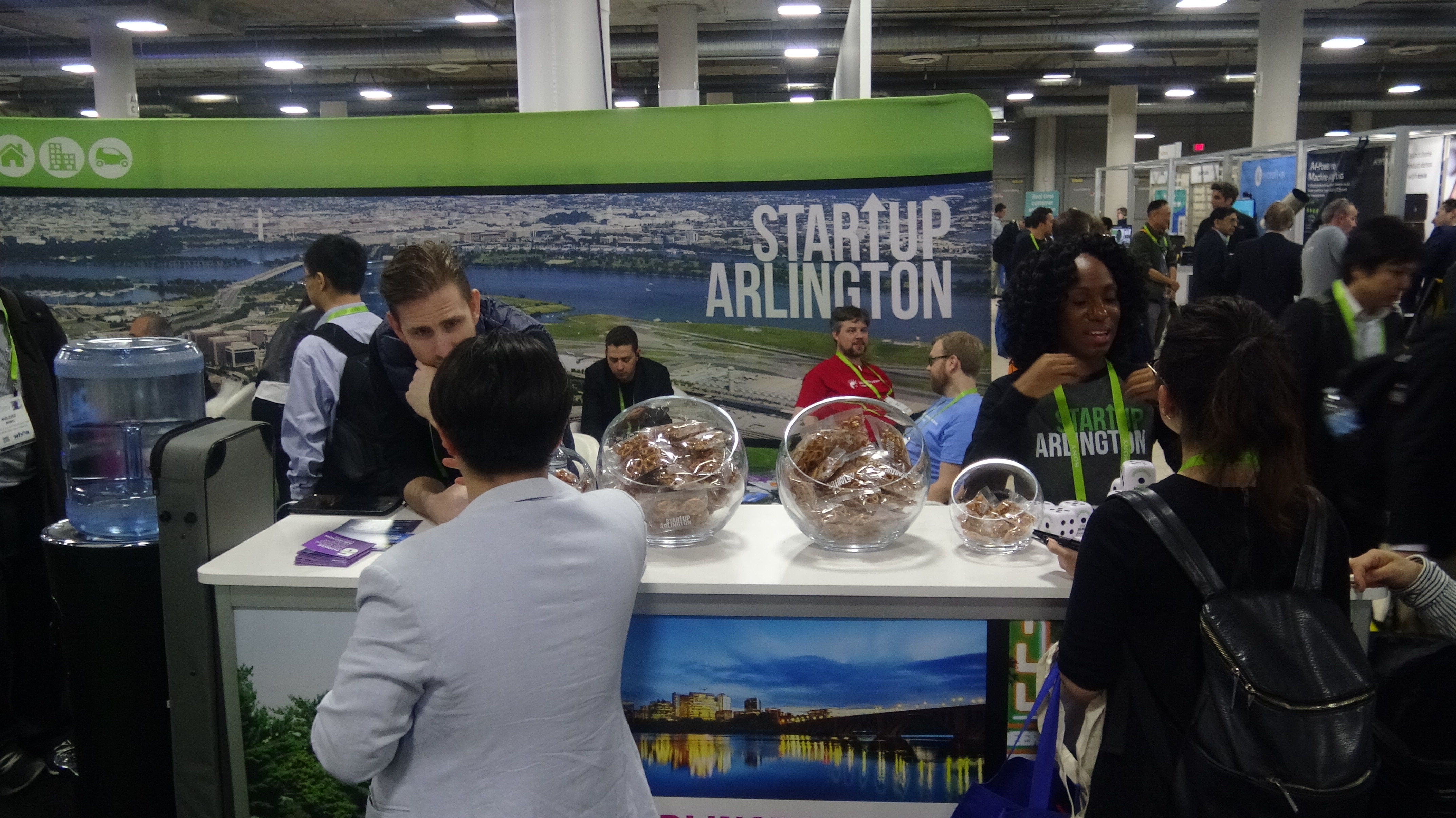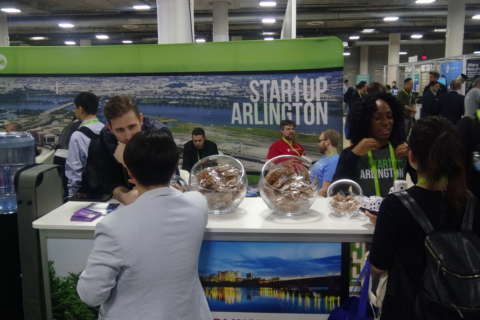
LAS VEGAS — While incubators, accelerators and mentorship programs have long thrown their power and weight behind supporting entrepreneurs, a trend has emerged: Communities are adding their political and intellectual capital to the process.
The Washington, D.C. Economic Partnership — which annually hosts its WeDC House as part of the SXSW Technology Festival in Austin, Texas, each March — is one example of such a private-public partnership. Another is the Fairfax County Economic Development Entrepreneurship Program.
But this week in Las Vegas, another major D.C.-area jurisdiction has brought its unique approach for supporting local startups to CES.
“We’re here to promote our national contest known as Startup Arlington, but we are also here to provide opportunities for some of the local companies in our county to exhibit in our space,” said Christina Winn, director of business investment for Arlington Economic Development, or AED.
“We brought 12 companies to our space … and gave them a forum through which to exhibit and display their innovation and vision.”
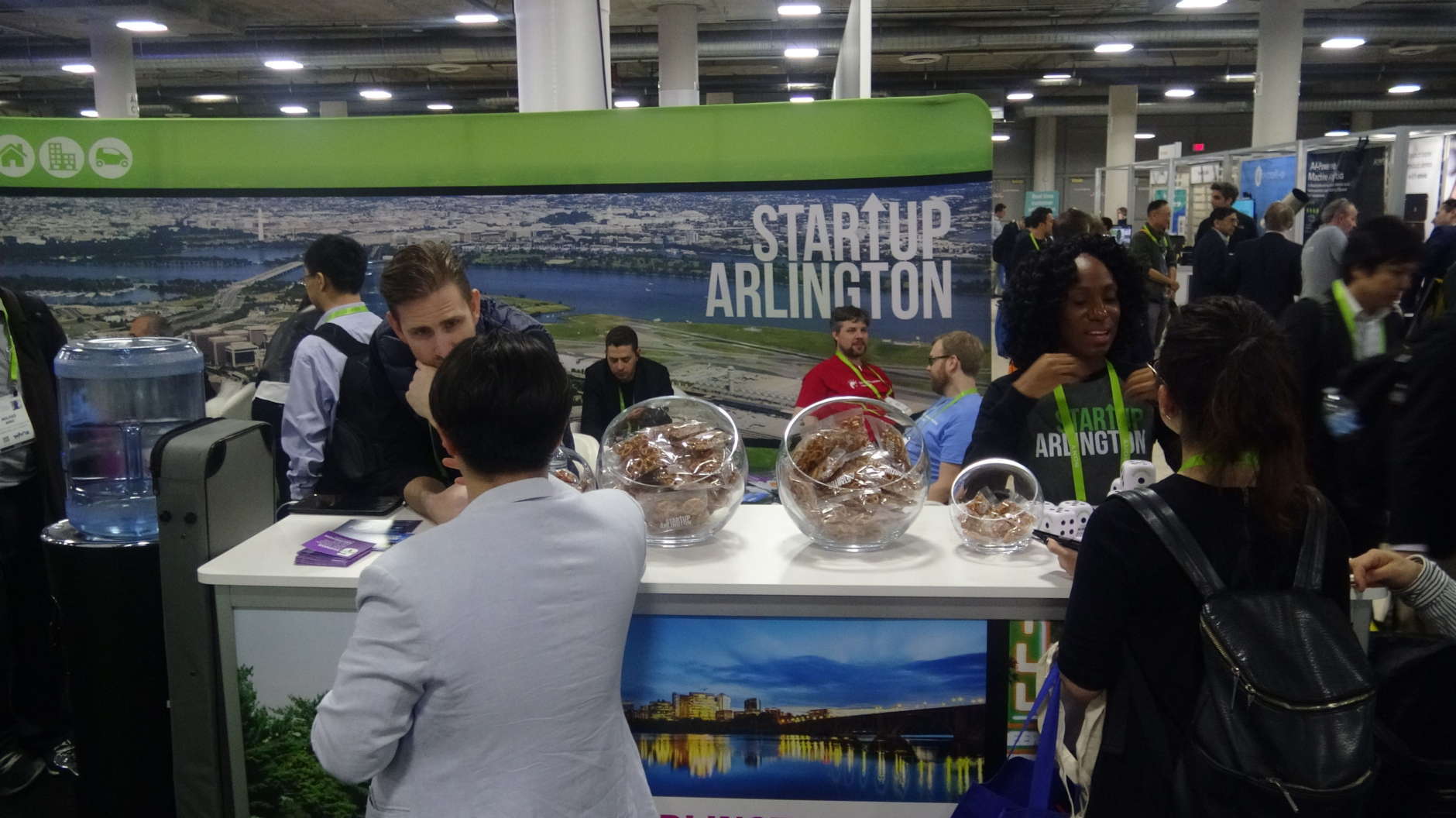
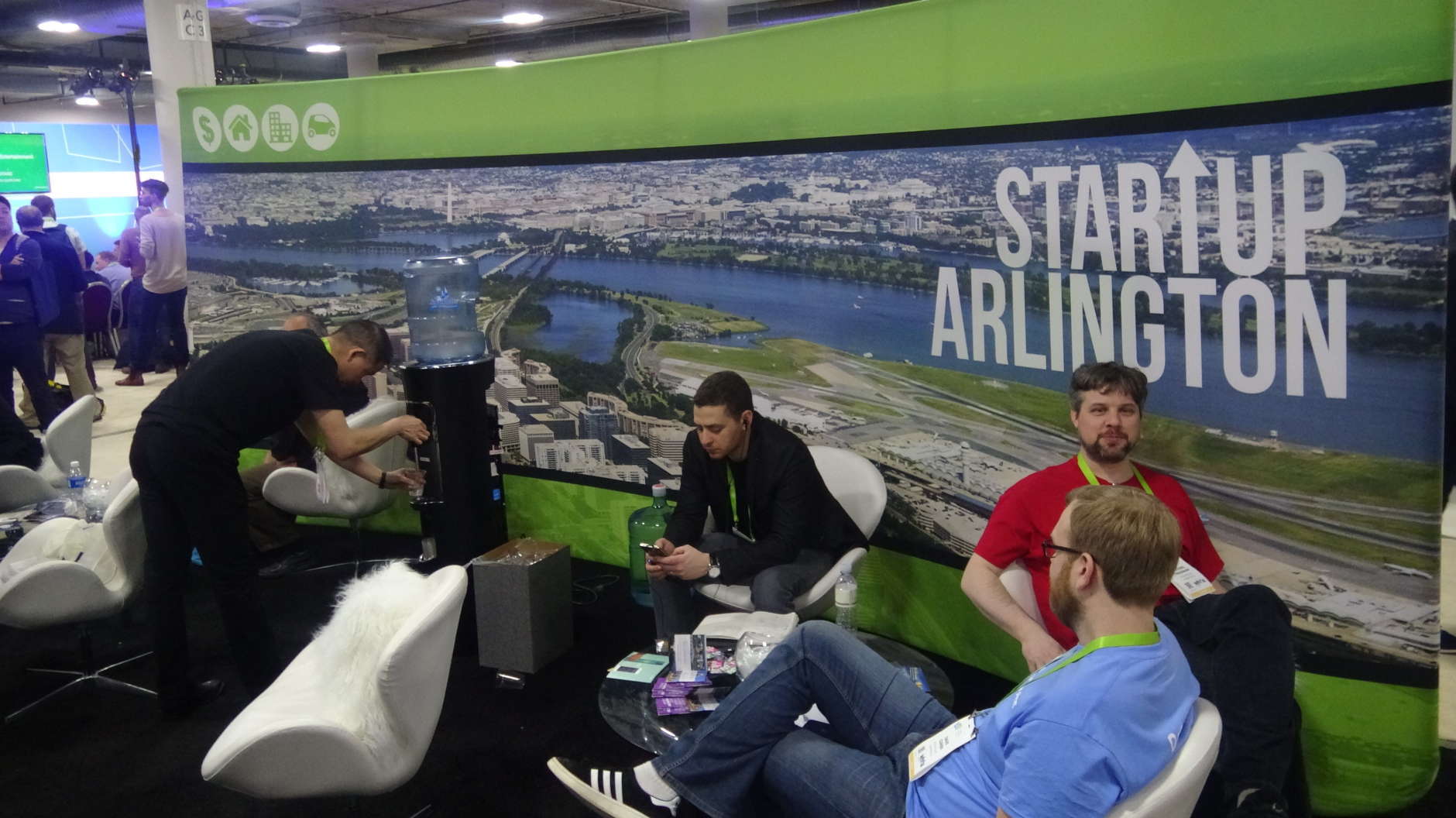
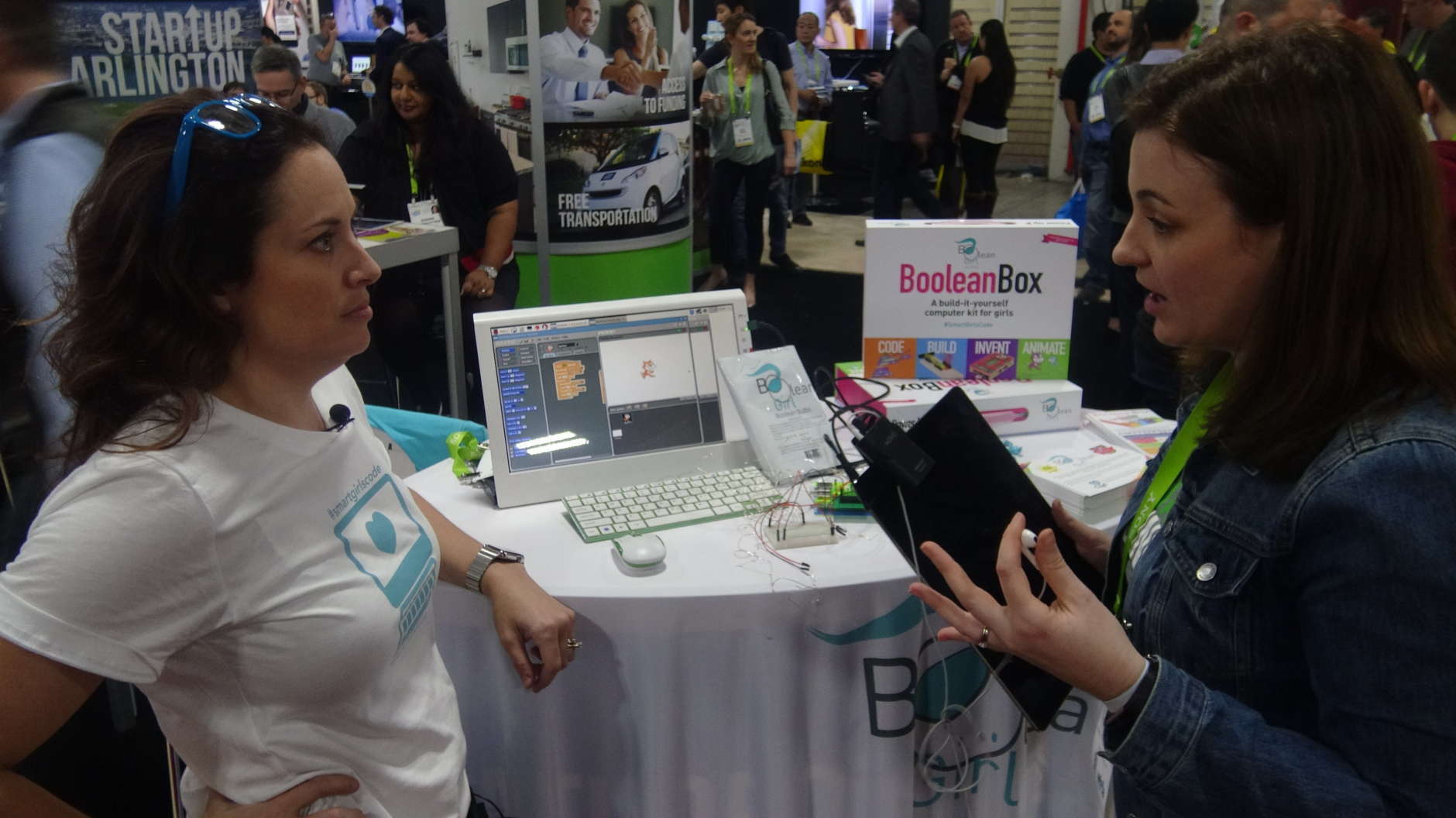
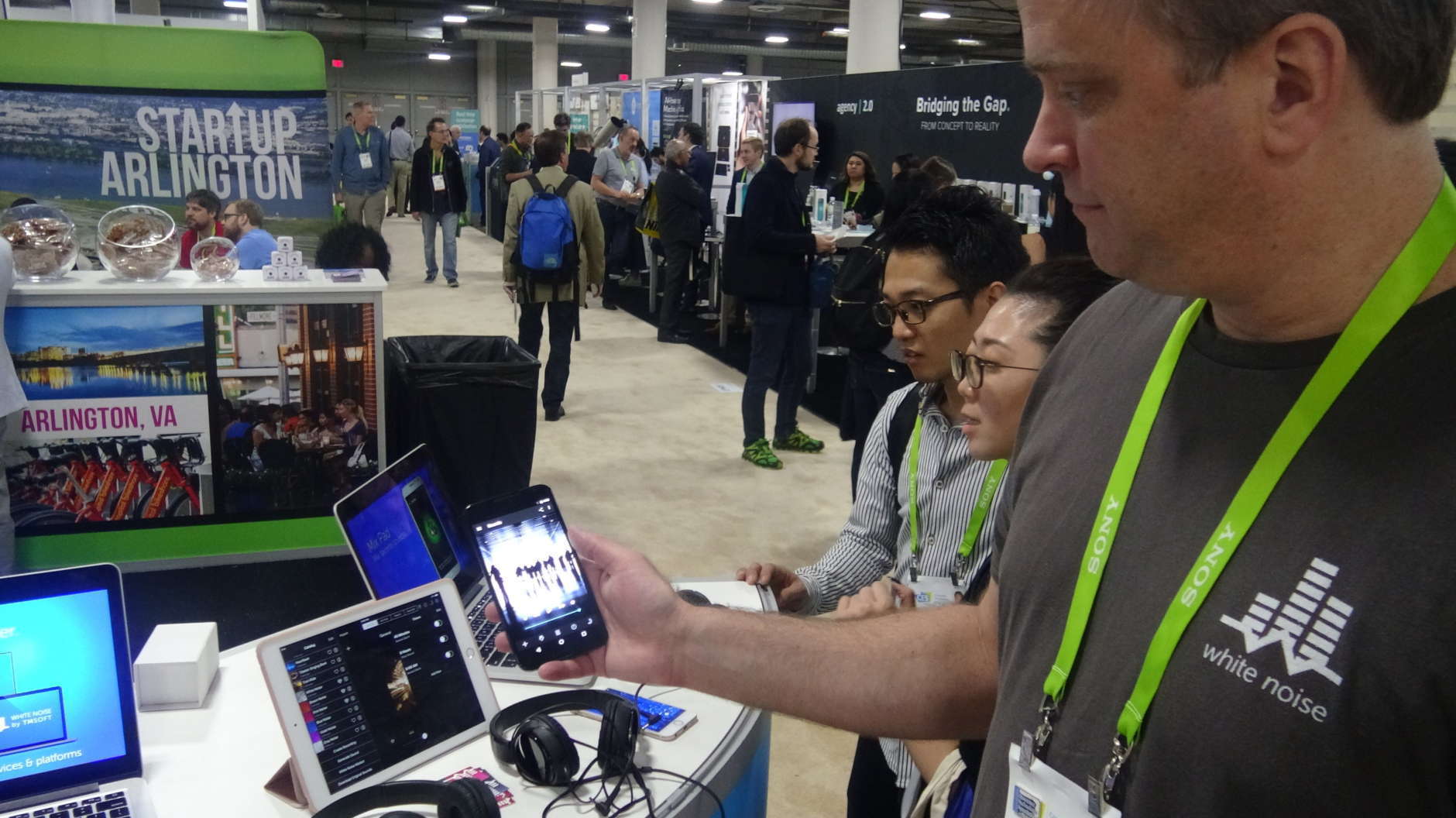
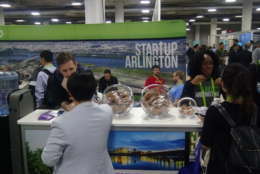
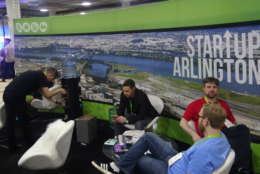
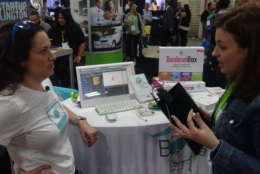
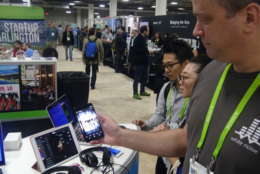
As a community that was once reliant on government leases to populate its commercial real estate portfolio, the closing of military bases and across-the-board federal spending cuts, known as sequestration, forced a shift in focus.
As a result, AED turned its attention to the innovation economy, adopting a focus toward attracting fast-growing technology companies in fields that range from cybersecurity and big data to education, medical and clean technology.
The process seems to have taken hold.
“The county has been phenomenally helpful in terms of helping my company become one of the fastest growing businesses in the county,” said Dr. John Kaufhold, managing partner and data scientist of Deep Learning Analytics.
“One of the key things was their SCORE program, through which the county provided a mentor,” he said. Through this program, I worked with a phenomenal mentor … and he really, from the beginning, put this company on a course to succeed.”
For Ingrid Sanden, co-owner of Boolean Girl — a company that teaches girls how to code and build their own PCs — the AED program is more about how the county might potentially integrate her company more deeply in the community.
“For us, it’s all about future growth and expansion,” she said. “Ultimately, we are looking to get additional space to continue our classes here, to acquire some office space and grow our relationship with the county.”
If Sanden is lucky, she could wind up securing that space for free. After all, AED is using CES as a platform to launch its Startup Arlington program, which offers one winning company the opportunity to take up residency in the community.
This opportunity includes at least three months of living space along with the chance to experience Arlington’s restaurants, shops, festivals and monuments.
But the best thing of all? There’s no cost to enter and win.
All week long, companies such as Deep Learning Analytics, Boolean Girl and others are enjoying the opportunity to showcase their technological innovation, much of which is attributed to the support generated by the county’s program.
“We do a lot to help our member companies,” Winn said. “We offer counseling, we connect them into our tech ecosystem, we make introductions to people they should know — whether that’s VCs, mentors or advisers — or by providing co-working space.
“Plus, we do a lot to generate render opportunities just like this one … to come here and be at CES and display and try to generate revenue and market and promote their products.”
Steve Winter and Kenny Fried are WTOP contributors who work for Brotman|Winter|Fried, a Sage Communications Company.

